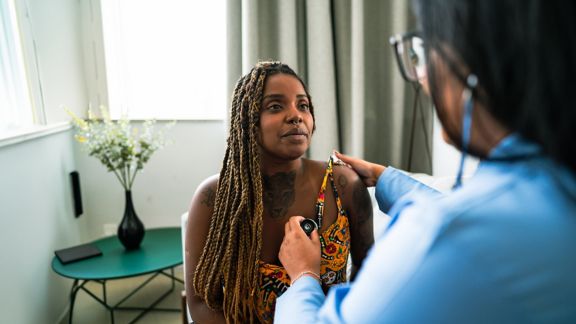NAMI on Campus

Problem
High school and college students are struggling with their mental health.
Mental health plays a central role in academic success. Unfortunately, both high school and college students are struggling with their mental health. For example, data from the Healthy Minds Study show that 38 percent of college students reported moderate or severe depression symptoms, 34 percent moderate or severe anxiety symptoms, and 13 percent past-year suicidal ideation in the 2023-2024 academic year. Among adolescents ages 12 to 17, 20.1 percent experienced a major depressive episode, 12.7 percent reported thoughts of suicide, 5.9 percent made a suicide plan, and 0.7 percent reported having attempted suicide. Programs, services, and resources are needed to help support high school and college students for optimal health, mental health, and academic success.
The National Alliance on Mental Illness (NAMI) created the peer-led NAMI on Campus (NOC) program to help ensure that students receive the support they need for their mental health while also facilitating connections with peers and improving mental health awareness within the school community. NAMI has never formally evaluated NOC and sought an external partner to examine the program’s implementation and impact on high school and college campuses.
Solution
NORC evaluated NAMI on Campus, a peer-led mental health program for students.
NAMI partnered with NORC to conduct the first formal evaluation of NOC. Specifically, the evaluation explored how the program is being implemented, its overall reach, facilitators and barriers to successful implementation, and its impact on students and their school climate. As part of the evaluation, NORC facilitated four focus groups with faculty and staff leads and fielded a survey of students involved in the program at their schools. NAMI plans to use the evaluation findings for quality improvement and program expansion.
Result
Findings will inform NAMI’s efforts to improve their high school and college mental health program.
Students reported several positive outcomes as a result of their participation in NOC:
- Ninety percent reported an increased awareness of mental health
- Eighty-eight percent were more likely to encourage friends or family to seek mental health services
- Eight-five percent were more familiar with available community mental health services, resources, and supports
- Eighty-three percent felt empowered to advocate for student mental health
- Seventy-nine percent reported a reduction in stigma
Both faculty advisors and students described factors that were critical to NOC implementation success, including sufficient support from school administration, NAMI National, and state and local NAMI chapters, dedicated faculty advisors, and strong student leadership boards.
NORC developed recommendations based on evaluation findings to inform next steps for NOC implementation and expansion. These recommendations focused on the implementation and evaluation of NOC, as well as recommendations for how to increase the overall impact of the program on school climate and student mental health and well-being







:mobileHorizontal)
